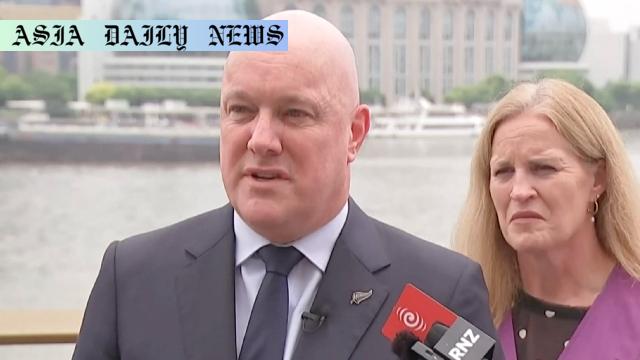New Zealand aid freeze: Financial aid to Cook Islands paused due to unease over their growing strategic ties with China.
New Zealand has frozen $18 million in financial aid to the Cook Islands.
The aid suspension arises from concerns over the Cook Islands’ strategic partnership with China.
The Cook Islands asserts its China agreement excludes security and defense matters.
New Zealand delays fresh funding until trust is restored with the Cook Islands.

New Zealand Halts Aid Over Strategic Concerns
In a striking development, New Zealand has announced the freezing of $18 million NZD ($11 million USD) worth of financial aid to the Cook Islands for the fiscal year 2025-26. This decision, which highlights rising geopolitical tensions in the Pacific region, reflects New Zealand’s growing concern over the Cook Islands’ recent strategic partnership with China. The issue has drawn international attention and raised questions about influence in the strategically important Pacific region.
The Cook Islands, a self-governing state in free association with New Zealand, signed a strategic partnership with China in February. According to the Cook Islands’ statements, the agreement does not involve security or defense matters. However, Wellington insists that it was neither consulted nor informed about this agreement. New Zealand Prime Minister Christopher Luxon expressed dissatisfaction, stating that the Cook Islands’ lack of transparency complicated their historically close relationship.
Strategic Challenges Shaping Foreign Aid Decisions
The freezing of financial aid is indicative of the broader complexities that New Zealand must navigate. Traditionally, New Zealand has been one of the Cook Islands’ main development partners, tasked with supporting the nation economically and defending it. However, the deepening ties between the Cook Islands and China pose potential risks for New Zealand, as the latter is apprehensive of China’s expanding influence in the Pacific region, which has been a point of contention for countries such as the United States and Australia as well.
The Cook Islands’ move to broaden its diplomatic partners demonstrates its attempt to diversify its international ties. However, New Zealand’s response illustrates the precarious balance that small nations often face when dealing with global powers.
Trust and Transparency: Foundational Pillars in Diplomacy
New Zealand’s decision to withhold aid until trust is restored underscores the essential value of transparency in international relations. Both the Cook Islands and New Zealand are tied by a historical partnership that includes mutual consultation on defense and security matters. New Zealand insists that the lack of prior dialogue contradicts the spirit of their association, while the Cook Islands maintains its agreement with China does not infringe on any defense or security concerns. The tension surrounding their differing perspectives indicates a potential strain in their relationship until clarity is achieved.
The geopolitical tensions in the Pacific underscore why smaller nations such as the Cook Islands must balance such decisions carefully. For New Zealand, reasserting its influence and maintaining trust in key relationships is vital as it navigates China’s growing economic and strategic footprint.



Commentary
The Intricacies of New Zealand’s Funding Freeze
New Zealand’s decision to freeze financial aid to the Cook Islands signals a strong stance in the face of geopolitical complexities in the Pacific. While the Cook Islands are entitled to foster relationships with other nations, including China, New Zealand’s concerns highlight the delicate interplay of trust, transparency, and sovereignty within their historic partnership. This situation underscores why even strategic alliances need robust frameworks to address evolving challenges.
The involvement of China adds a significant layer to this issue. China’s increasing influence within the Pacific continues to be a contentious point for traditional powers such as New Zealand, Australia, and the United States. By partnering with China, the Cook Islands may unlock new economic potentials, yet it risks alienating other key allies in the region. This predicament sheds light on the balancing act that smaller nations must perform when navigating the interests of larger powers.
The Role of Transparency in Global Diplomacy
At its core, the dispute revolves around transparency. New Zealand insists on being informed beforehand about strategic agreements affecting their sphere of influence. The lack of consultation regarding the Cook Islands’ partnership with China has raised legitimate concerns about whether their bilateral agreements hold the trust necessary to sustain their long-standing association. Strengthening transparency is critical not only for resolving this immediate impasse but also for ensuring mutual trust in the future.
Moving forward, reinstating trust between the Cook Islands and New Zealand will require deliberate efforts from both sides. Small states like the Cook Islands should recognize the importance of maintaining clear, open channels of communication with longstanding allies while exploring alternative partnerships. Diplomatically, this serves as a broader lesson for nations globally: trust, when fractured, often takes time and careful efforts to restore.